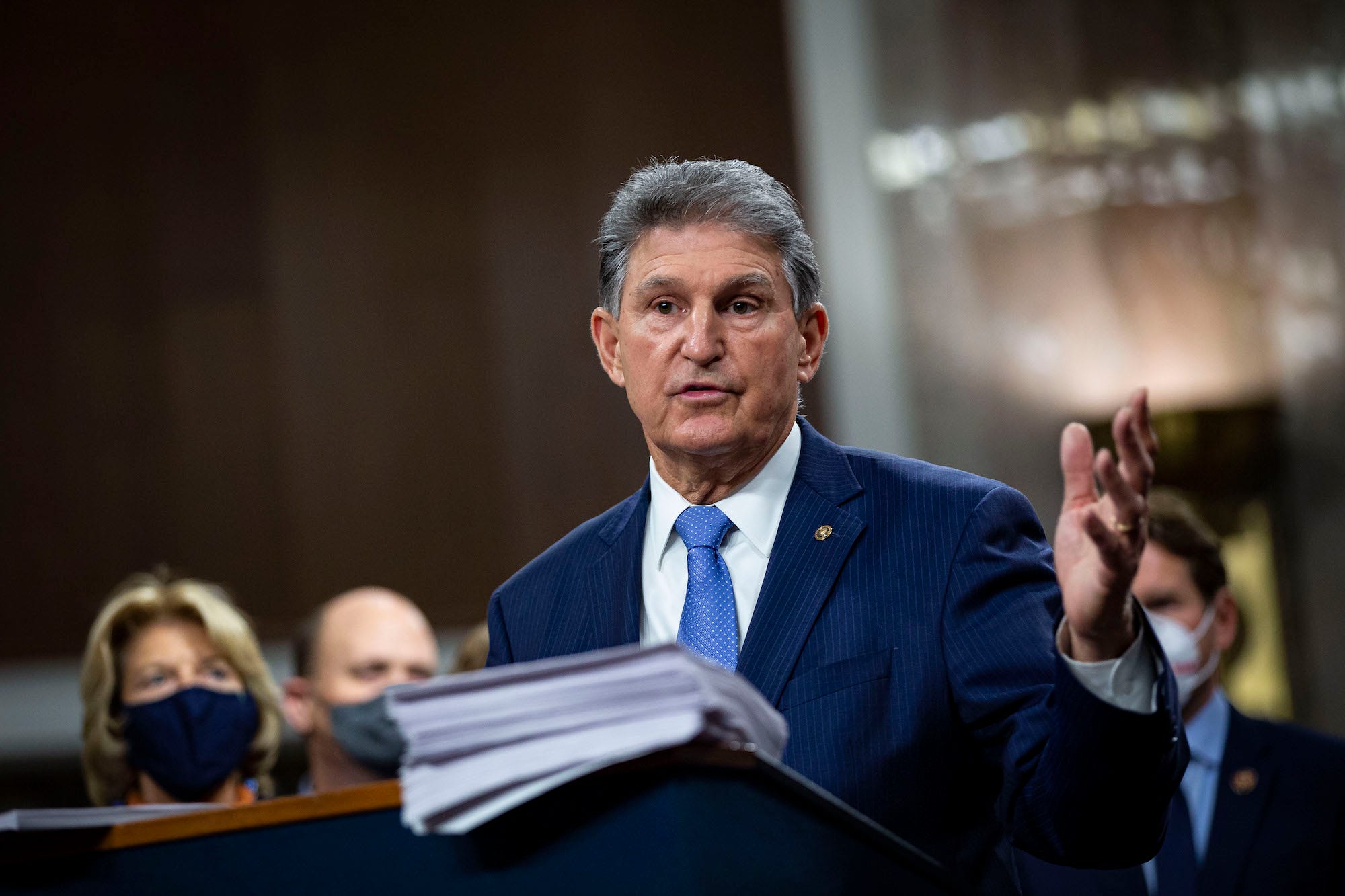
Al Drago for The Washington Post via Getty Images
- Manchin says that the process for DC statehood should be done through a constitutional amendment.
- "If you go down that path … you know it's going to go to the Supreme Court," he said.
- With intense GOP opposition, Manchin's position severely imperils the legislation's passage.
- See more stories on Insider's business page.
Democratic Sen. Joe Manchin of West Virginia said Friday he would not back a House-passed bill making Washington, DC, the nation's 51st state, arguing that the process should be done through a constitutional amendment.
During a radio interview on WV MetroNews Talkline, a West Virginia news outlet, Manchin said that he wouldn't support Democrats unilaterally enacting statehood and said previous Justice Departments had already examined the issue.
"They all came to the same conclusion," he said. "If Congress wants to make DC a state, it should propose a constitutional amendment. It should propose a constitutional amendment and let the people of America vote."
When asked, Manchin reiterated said that he would not support a standalone statehood bill.
"I would tell all my friends … if you go down that path because you want to be politically popular … you know it's going to go to the Supreme Court," he said. "So why not do it the right way?"
Manchin's position severely imperils the legislation and underscores the tenuous position that Democrats have in the evenly divided Senate, which the party controls due to Vice President Kamala Harris's tiebreaking vote. Any Democratic defection can doom major legislation, especially with Manchin and Sen. Krysten Sinema of Arizona opposed to eliminating the Senate filibuster, which creates a 60-vote threshold to break.
Late last month, the Democrat-controlled House passed the DC statehood bill, also known as H5 51, which would give the new state of Washington, Douglass Commonwealth, two senators, a full voting member of Congress, and a governor.
The vote was 216-208, with no Republicans supporting the legislation.
The legislation, which is strongly supported by President Joe Biden, would shrink the size of existing federal district to include landmarks such as the White House, US Capitol, and the National Mall.
GOP congressional leaders have decried the bill as a Democratic-led "power grab," despite past support for statehood from conservatives like former President Richard Nixon and the late Sen. Barry Goldwater of Arizona.
But even with united Republican opposition, the bill has run into additional turbulence among Senate Democrats.
The Senate statehood bill (S. 51), which is sponsored by Delaware Sen. Tom Carper, needs 50 Democratic senators and currently only has 44 co-sponsors, with the exclusion of moderates like Manchin, Sinema, and Sens. Mark Kelly of Arizona, Angus King of Maine, and Jeanne Shaheen of New Hampshire.
A spokesman for Carper on Friday responded to Manchin's assertion that the 23rd Amendment would raise constitutional issues for congressional action on the issue.
The 23rd Amendment, which was ratified by the states in 1961, extended voting rights for presidential elections to District residents.
"The Constitution - including the 23rd Amendment - does nothing to prohibit the granting of statehood to the District of Columbia, nor does it establish a minimum state size or the location of the federal district," the spokesman said.
In the 2016 election, District voters backed statehood by a 86% to 14% margin.